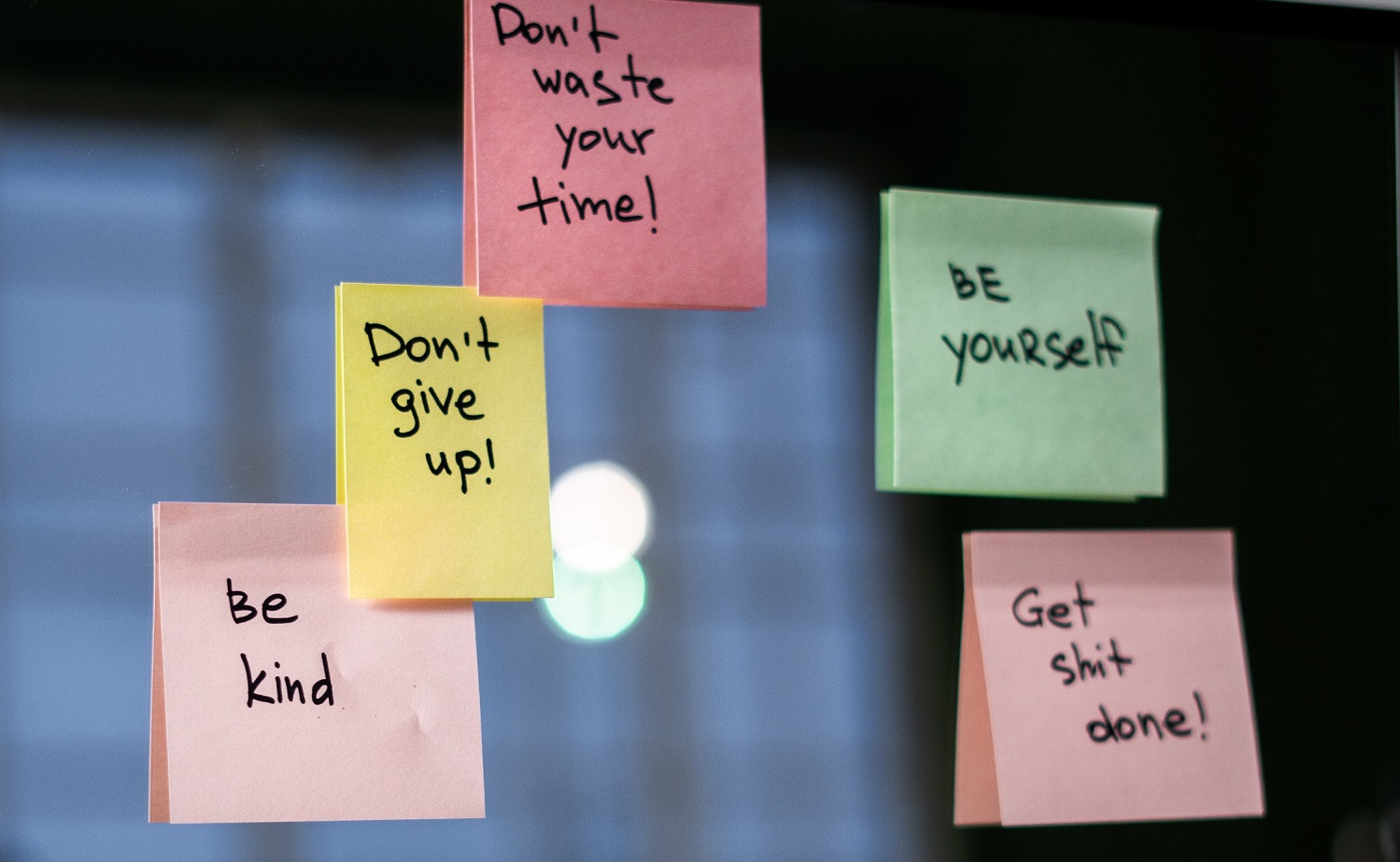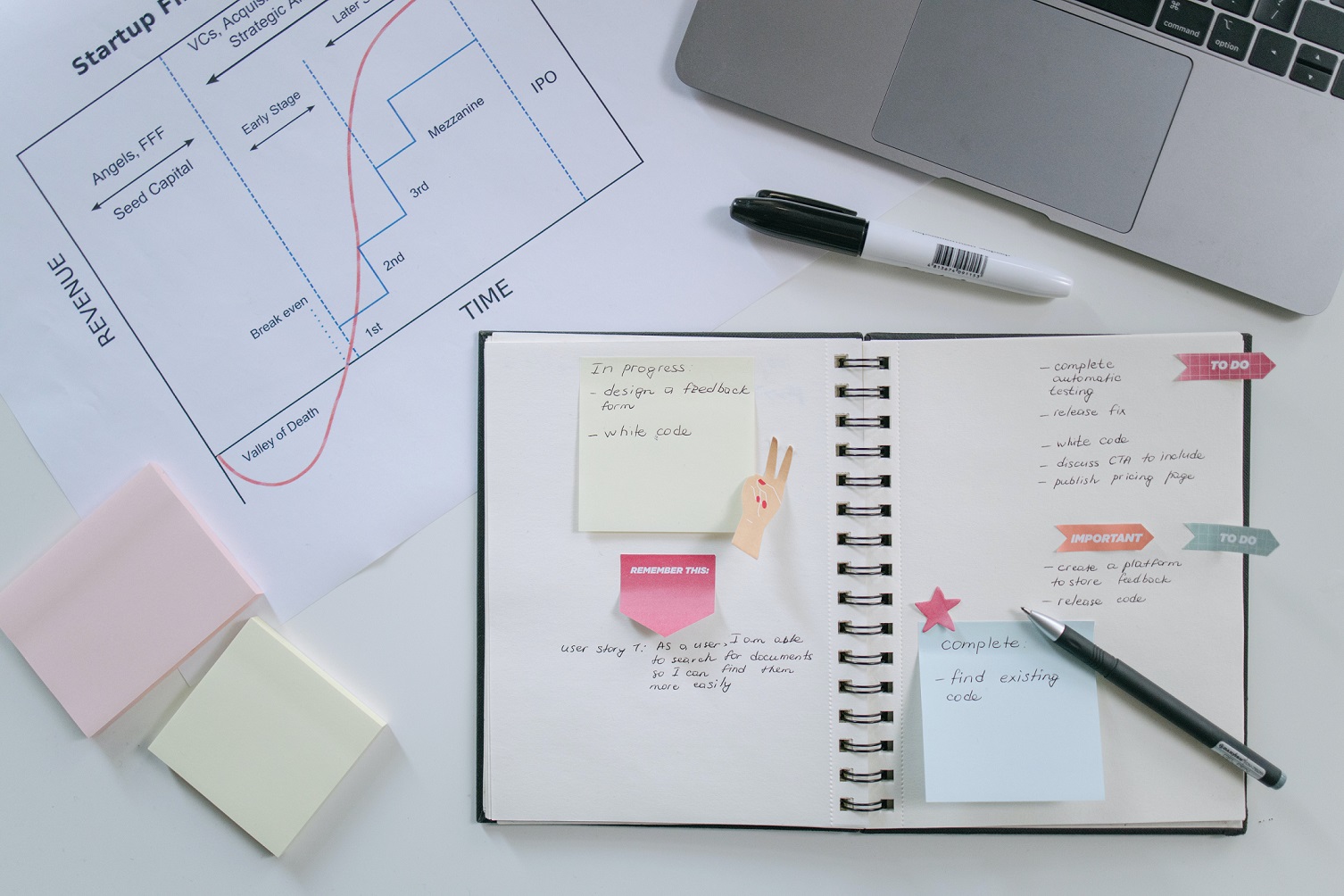Part 5 of 10 - The Negativity Nemesis: Conquering Adversity with Positivity
 Sachin Raverkar
Sachin Raverkar
Welcome, fearless coders, to the realm of positivity, where challenges transform into opportunities and setbacks pave the way for comebacks!
In this exhilarating chapter, we're embarking on a heroic quest to vanquish the Negativity Nemesis. Armed with the shield of optimism and the sword of resilience, we'll uncover the secrets to conquer adversity and thrive amidst challenges. Get ready to unlock the power of positivity, turning every obstacle into a stepping stone towards success!
Recap from the Previous Chapter: The Zen of Stress Management In our previous adventure, we mastered the art of stress management. We learned the importance of mindfulness, embracing imperfections, and the calming magic of deep breaths. Armed with these skills, we're now equipped to face the Negativity Nemesis head-on.

Practice Gratitude Daily
Count your blessings every morning, appreciating the positive aspects of your life.
Why Practice Gratitude Daily: Gratitude is the key to unlocking happiness. It rewires our brains, making us more resilient, optimistic, and compassionate.
Ted Talk Recommendation: The Power of Vulnerability by Brené Brown.
Ideas to Infuse Gratitude into Your Day:
Morning Gratitude Ritual:
Start each day by jotting down three things you're grateful for. It could be the sunrise, a kind gesture, or simply the gift of a new day.
Gratitude Jar:
Create a gratitude jar at home or work. Whenever something positive happens, write it on a colourful slip and drop it in. Witness the jar fill with joy over time.
Gratitude Walks:
During your walks, observe the beauty around you, and marvel at the blooming flowers, the blue sky, or the rustling leaves. Express gratitude for nature's wonders.
Gratitude Letter:
Write a heartfelt letter to someone who positively impacted your life. It could be a mentor, a friend, or a family member. Express your gratitude and send it to them.
Gratitude Visualization:
Before sleep, visualize three things you're grateful for. Imagine the sensations and emotions associated with them. Let gratitude lull you into a peaceful sleep.
Positive Affirmations

Start your day with empowering affirmations, reinforcing your self-belief.
Ted Talk Recommendation: The Happy Secret to Better Work by Shawn Achor
Why do Positive Affirmations Matter? Positive affirmations sculpt our self-belief, paving the way for confidence, creativity, and a can-do attitude.
Ideas to Embrace Positive Affirmations:
Mirror Affirmations:
Stand in front of the mirror, look into your eyes, and affirm your worth. "I am capable. I am resilient. I am worthy of success."
Affirmation Sticky Notes:
Place colourful affirmation notes on your desk, bathroom mirror, or laptop. Let positive messages surprise and motivate you throughout the day.
Affirmation Voice Recordings:
Record your affirmations in your voice. Listen to them during your commute or while exercising. Let your voice boost your morale.
Morning Affirmation Routine:
Start your day with a series of affirmations. Align them with your goals. "I am a skilled coder. I tackle challenges with ease."
Affirmation Wall Art:
Create vibrant wall art with your favourite affirmations. Decorate your workspace and immerse yourself in positivity.
Spread Kindness

Perform random acts of kindness, creating a ripple effect of positivity.
Ted Talk Recommendation: Everyday Leadership by Drew Dudley.
Why Spread Kindness? Kindness is a beacon of light in a world often shadowed by negativity. It not only brightens others' days but also illuminates our hearts.
Ideas to Spread Kindness:
Random Acts of Kindness:
Pay for a stranger's coffee, leave an uplifting note in a library book, or compliment a colleague sincerely. Small acts have an immense impact.
Volunteer for a Cause:
Dedicate your time to a local charity or community project. Your skills as a coder can transform lives.
Kindness Coupons:
Design kindness coupons offering help. It could be assisting a neighbour, tutoring a friend, or fixing a tech issue for someone non-tech-savvy.
Thank-You Cards:
Send handwritten thank-you cards to people who've made a difference in your life. Expressing gratitude spreads kindness effortlessly.
Online Positivity:
Be a source of positivity online. Leave encouraging comments, share inspirational stories, and create a ripple of kindness on social media.
The Resilience Ritual: Bouncing Back from Setbacks

Embracing Failure as a Teacher
View failures as valuable lessons, guiding your path to improvement.
Ted Talk Recommendation: The Power of Vulnerability by Brené Brown
Cultivating a Growth Mindset:
Believe in your ability to develop skills through dedication and hard work.
Ted Talk Recommendation: The Power of Believing That You Can Improve by Carol Dweck
Adopting a Solution-Focused Approach:
Focus on finding solutions rather than dwelling on problems.
Ted Talk Recommendation: The Happy Secret to Better Work by Shawn Achor
Why Embrace Failure as a Teacher? Failure is not the end but a pivotal chapter in our journey. It teaches resilience, fuels innovation, and shapes extraordinary success stories.
Ideas to Embrace Failure Positively:
Failure Reflection Sessions:
After a setback, reflect on what went wrong. Analyze the process, identify lessons, and jot down actionable insights for future endeavours.
Failure-Tolerance Exercises:
Engage in small tasks where failure is permissible. It could be learning a new recipe or attempting a craft. Embrace mistakes, celebrate the process, and learn from missteps.
Failure-sharing Circles:
Create a safe space with friends or colleagues to share failures openly. Discussing setbacks reduces stigma, fosters empathy, and provides diverse perspectives for solutions.
Failure-to-Success Narratives:
Read or watch biographies of successful individuals. Observe how their failures became stepping stones. Understanding others' journeys instils hope and resilience.
Failure Journaling:
Maintain a failure journal. Document each failure, the emotions it evoked, and the subsequent growth. Witnessing personal growth over time transforms setbacks into cherished lessons.
The Positivity Network: Building a Supportive Environment

Surrounding Yourself with Positivity:
Engage with optimistic colleagues, friends, and mentors who inspire and uplift you.
Ted Talk Recommendation: The Power of Vulnerability by Brené Brown
Constructive Criticism and Growth:
Embrace feedback as a tool for growth, appreciating constructive criticism.
Ted Talk Recommendation: How to Ask for Help -- and Get a "Yes" by Heidi Grant
Why Surround Yourself with Positivity? A positive environment nurtures creativity, enhances problem-solving, and uplifts spirits during challenging times. It fosters collaboration, amplifies resilience, and transforms difficulties into triumphs.
Ideas to Cultivate a Positive Network:
Positivity Potlucks:
Host gatherings where friends or colleagues bring positive stories to share. A potluck of optimism nourishes the soul and inspires everyone present.
Gratitude Circles:
Form circles where participants express gratitude for each other. Acknowledging others' positivity multiplies collective optimism.
Positivity Book Club:
Initiate a book club focusing on positive literature. Discussing inspiring books amplifies collective wisdom, fostering an environment of growth and encouragement.
Mentorship Exchanges:
Establish mentorship exchanges where seasoned professionals guide newcomers. Mentorship creates a ripple effect of positivity, nurturing the next generation of leaders.
Positivity Challenges:
Organize challenges within your community, encouraging acts of kindness and positivity. Competing to spread joy leads to a cascade of positive actions, benefitting all involved.
Action Plan: Embracing Positivity in Your Coding Journey

Embracing Failure as a Teacher: Unveiling Growth in Setbacks
Action Plan: Embracing Failure Positively
Failure Reflection Sessions:
Idea 1: Set aside dedicated time after a setback to journal about the experience, focusing on lessons learned and areas for improvement.
Idea 2: Engage in group reflection sessions with colleagues, encouraging open discussions about recent challenges and failures.
Idea 3: Create a mind map outlining the failure, its causes, and potential solutions. Visualizing the problem often reveals overlooked aspects.
Idea 4: Seek feedback from peers or mentors, gaining diverse perspectives on the situation and valuable insights for future endeavours.
Idea 5: Write a letter to your future self, describing the failure and outlining the steps you intend to take to overcome similar obstacles.
Failure-Tolerance Exercises:
Idea 1: Learn a new skill or hobby where mistakes are part of the process, such as painting, cooking, or coding. Embrace errors as natural learning curves.
Idea 2: Attempt small DIY projects, allowing room for imperfections. The focus should be on the joy of creating rather than achieving flawless results.
Idea 3: Engage in public speaking at a local event or online platform. Embrace nervousness and potential mistakes, considering them opportunities to improve.
Idea 4: Participate in a hackathon or coding competition. Embrace challenges faced during the event as valuable experiences, regardless of the outcome.
Idea 5: Collaborate on a creative project with friends, emphasizing the importance of experimentation and learning from creative failures.
Failure-sharing Circles:
Idea 1: Organize monthly or quarterly meetups where professionals share their failure stories and the profound lessons they learned.
Idea 2: Create an anonymous online platform where individuals can share their failures without fear of judgment, fostering a supportive online community.
Idea 3: Host storytelling events focused on failures, inviting speakers from various fields to inspire the audience with their resilience and growth journeys.
Idea 4: Conduct themed failure-sharing sessions, such as "Technology Failures" or "Career Setbacks," allowing participants to relate to specific contexts.
Idea 5: Invite guest speakers who have overcome significant failures to share their stories, providing diverse perspectives and empowering the audience.
Failure-to-Success Narratives:
Idea 1: Read biographies or watch documentaries about renowned personalities, focusing on their early failures and the tenacity that led to their eventual success.
Idea 2: Explore TED Talks featuring speakers who openly discuss their failures and the transformative impact those setbacks had on their personal and professional growth.
Idea 3: Join online forums or discussion groups centred around success stories born from failures. Engage in conversations and share your own experiences.
Idea 4: Write a blog post or create a podcast episode where you analyze a famous failure-to-success story, extracting valuable lessons applicable to your journey.
Idea 5: Organize a movie night featuring films depicting real-life stories of individuals who turned profound failures into remarkable achievements, inspiring attendees.
Failure Journaling:
Idea 1: Design a visually appealing journal dedicated to documenting failures, complete with inspirational quotes, illustrations, and space for reflection.
Idea 2: Include a "Lesson Learned" section in your journal, summarizing key takeaways from each failure and actionable steps for future improvement.
Idea 3: Use multimedia elements in your journal, such as voice recordings or video diaries, to capture raw emotions and reflections after experiencing a setback.
Idea 4: Personalize your journal with creative prompts related to failure, encouraging introspection and self-discovery in the face of challenges.
Idea 5: Periodically review past entries in your journal, celebrating progress made since each failure and appreciating the growth achieved over time.
The Positivity Network: Building a Supportive Environment
Action Plan: Cultivating a Positive Network
Positivity Potlucks:
Idea 1: Host a virtual potluck via video call, where attendees share their positive experiences and achievements, fostering a spirit of celebration.
Idea 2: Organize a themed potluck where participants dress up or decorate their backgrounds based on a positive theme, such as "Sunshine and Smiles."
Idea 3: Create a collaborative digital recipe book featuring dishes shared during the potluck. Share the book with attendees as a delightful keepsake.
Gratitude Circles:
Idea 1: Initiate a weekly gratitude circle where participants express appreciation for fellow members, highlighting specific acts of kindness and support.
Idea 2: Create a gratitude jar shared among circle members. Each week, add handwritten notes expressing gratitude and read them aloud during the circle.
Idea 3: Rotate the facilitator role within the circle, allowing different members to lead the session and bring fresh perspectives and activities.
Positivity Book Club:
Idea 1: Select books focused on personal growth, positivity, or resilience. Host bi-weekly discussions where members share their insights and how they plan to implement lessons from the books.
Idea 2: Collaborate on creative projects inspired by the themes of the books. This could include artwork, poetry, or short stories reflecting the positive messages conveyed.
Idea 3: Invite authors of positivity-focused books for virtual Q&A sessions with book club members, allowing direct interaction and deeper exploration of the

With the Negativity Nemesis defeated and the power of positivity harnessed, you, courageous coders, are unstoppable!
As you continue your coding odyssey, remember that every line of code you write is a testament to your resilience and optimism.
🎨✨ Get ready to unleash your inner Picasso and dive into the vibrant world of creativity! In the upcoming chapter of our journey, we'll explore "The Creative Canvas: Embracing Creativity and Originality." Imagine stepping into a realm where innovation knows no bounds and originality is celebrated like never before.
Stay positive, keep coding, and let the world witness the incredible solutions you craft from challenges. Until our next adventure, code on with a smile! 😊🚀
Subscribe to my newsletter
Read articles from Sachin Raverkar directly inside your inbox. Subscribe to the newsletter, and don't miss out.
Written by

Sachin Raverkar
Sachin Raverkar
I am a seasoned software professional with over two decades of experience in the dynamic world of SaaS product development. My journey in the software industry has seen me tackle a wide range of challenges, from crafting scalable and robust code to leading teams in the delivery of innovative software solutions. If you're a fellow Hashnode.com enthusiast, let's connect and continue the conversation. Feel free to connect with me on Hashnode to stay updated on my latest articles and join in the discussions. I'm always eager to hear your thoughts and insights. Don't forget to leave comments on my articles to share your feedback, ideas, or even just to say hello! Your engagement is what makes this journey truly enriching. Let's inspire each other through the power of words and ideas. To make sure you never miss any of my future articles, click the 'Follow' button on my Hashnode profile. Together, we can explore the ever-evolving landscape of technology, creativity, and everything in between. Connect with me on Hashnode here: https://hashnode.com/@sagaofsilence. Looking forward to connecting, engaging, and growing together on Hashnode!